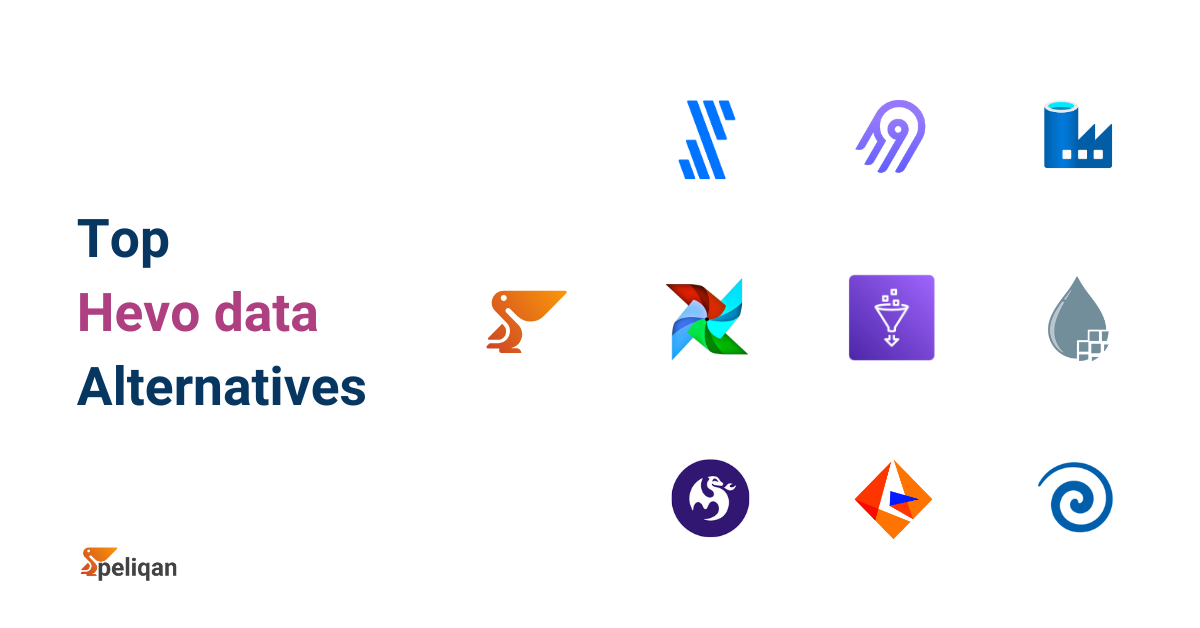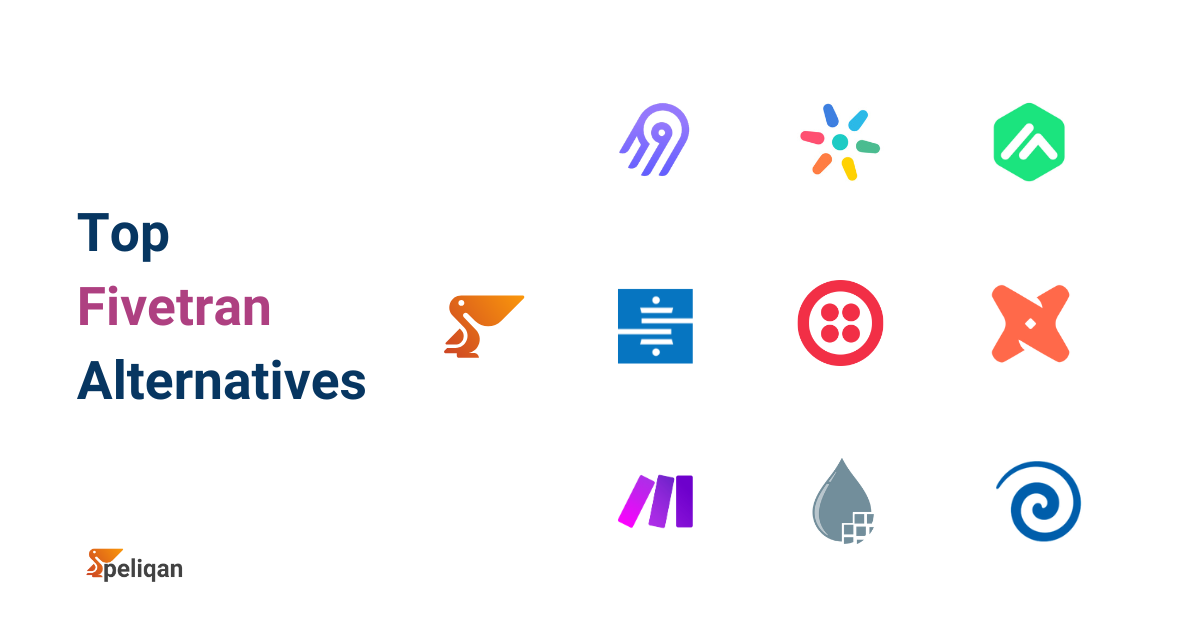Data Warehouse Benefits
In today’s data-driven business landscape, understanding the myriad of data warehouse benefits is crucial for organizations of all sizes. As we navigate an increasingly complex digital world, the advantages of data warehouses have become more apparent and crucial than ever before.
This comprehensive guide will explore the top 10 data warehouse benefits, delving into why implementing a data warehouse is no longer a luxury but a necessity for businesses aiming to thrive in the modern marketplace. We’ll also discuss the urgency of adopting this technology and introduce you to Peliqan, an innovative platform that’s making data warehousing accessible to businesses of all sizes.
The Evolution of Data Warehouse Benefits
Data warehouse benefits have significantly evolved over the years, adapting to changing business needs and technological advancements. Let’s compare traditional data warehouse benefits with modern advantages:
| Aspect |
Traditional Data Warehouse Benefits |
Modern Data Warehouse Benefits |
| Data Integration |
Centralized data storage |
Real-time data integration from multiple sources |
| Scalability |
Limited by hardware |
Cloud-based elastic scalability |
| Performance |
Batch processing |
Real-time analytics and processing |
| Cost |
High initial investment |
Pay-as-you-go cloud models |
| Data Types |
Structured data only |
Structured, semi-structured, and unstructured data |
| Accessibility |
IT-dependent |
Self-service analytics for business users |
| Analytics |
Historical reporting |
Predictive and prescriptive analytics |
| Deployment |
On-premises |
Cloud, hybrid, and multi-cloud options |
This evolution has expanded the scope of data warehouse benefits, making them more accessible and powerful for organizations of all sizes. Now, let’s delve into the key data warehouse benefits that are driving business success in the modern era.
Data Warehouse Benefits: Top 10
Whether you’re a seasoned data professional or new to the world of business intelligence, this article will provide valuable insights into the advantages of data warehouses and how they can propel your organization to new heights.
1. Unified Data Access
One of the primary data warehouse benefits is the creation of a single source of truth for your organization’s data. By consolidating information from various sources – such as CRM systems, financial databases, and marketing platforms – data warehouses ensure that everyone across departments is working with the same accurate and up-to-date information.
Key benefits:
- Elimination of data silos: No more conflicting reports or inconsistent information across departments.
- Improved data accuracy: Centralized data management reduces errors and discrepancies.
- Enhanced collaboration: Teams can work together more effectively with a shared understanding of the data.
- Faster decision-making: Access to comprehensive, reliable data enables quicker and more informed choices.
Example:
Consider a mid-sized e-commerce company that discovers the data warehouse benefits of unifying inconsistent customer data across their CRM and website analytics. By implementing a data warehouse, they can unify this information, allowing marketing to target campaigns based on accurate customer profiles and enabling the sales team to track order fulfillment more efficiently.
2. Advanced Analytics Capabilities
One of the most significant advantages of data warehouses is their ability to support advanced analytics and business intelligence initiatives. By storing large volumes of historical and current data in an optimized format, data warehouses provide the perfect foundation for complex analysis and reporting.
Key benefits:
- Historical trend analysis: Identify patterns and trends over time to inform future strategies.
- Predictive analytics: Leverage machine learning algorithms to forecast future outcomes.
- Ad-hoc querying: Empower business users to explore data and answer specific questions quickly.
- Performance optimization: Improve query performance for faster insights.
Example:
Imagine a healthcare provider using its data warehouse to analyze patient outcomes across different treatments and demographics. This analysis leads to the identification of more effective treatment protocols and improved patient care strategies. The data warehouse enables them to process large volumes of historical data quickly, uncovering insights that were previously hidden.
3. Scalability and Performance
As your business grows, so does your data. One of the crucial data warehouse benefits is the ability to scale seamlessly to accommodate increasing data volumes and user demands. Modern data warehouses, especially cloud-based solutions, offer unparalleled scalability and performance advantages.
Advantages of scalable data warehouses:
- Elastic resources: Scale computing power and storage up or down based on demand.
- Consistent performance: Maintain query speed even as data volumes grow.
- Cost-effectiveness: Pay only for the resources you use, optimizing your IT budget.
- Future-proofing: Accommodate future growth without major infrastructure changes.
Example:
Picture a rapidly growing fintech startup initially struggling with their transactional database slowing down due to increasing analytical queries. By implementing a
cloud-based data warehouse, they are able to offload analytical workloads, ensuring smooth operations for both transactional and analytical processes as their user base expands from thousands to millions
.4. Data Quality and Consistency
One of the often-overlooked advantages of data warehouses is their role in improving data quality and consistency. The ETL (Extract, Transform, Load) process inherent in data warehousing provides an opportunity to clean, standardize, and enrich data as it’s loaded into the warehouse.
Benefits of improved data quality:
- Enhanced decision-making: Reliable data leads to more accurate insights and better decisions.
- Increased trust in data: Users are more likely to rely on and act upon insights from trusted data sources.
- Reduced errors: Standardized data minimizes misinterpretations and mistakes in analysis.
- Compliance support: Clean, well-documented data helps meet regulatory requirements.
Example:
Consider a multinational corporation using its
data warehouse to standardize customer information across multiple regional databases. This standardization enables more accurate global customer analytics and ensures compliance with data protection regulations like GDPR,
NIS2. The improved data quality leads to more reliable insights and better decision-making across all regions
.5. Time and Cost Savings
Implementing a data warehouse can lead to significant time and cost savings, making it one of the most tangible data warehouse benefits for businesses.
Ways data warehouses save time and money:
- Automated reporting: Reduce manual data gathering and report creation.
- Faster query processing: Get answers to business questions in seconds rather than hours.
- Reduced IT overhead: Centralized data management can lower overall IT costs.
- Improved data governance: Streamlined data processes reduce the risk of costly errors and compliance issues.
Consider a retail chain
implementing a data warehouse to centralize its inventory management. This move can reduce stockouts by ~30% and overstocking by ~25%, leading to millions in annual savings. Additionally, the automated reporting features can cut down the time spent on manual data gathering by ~70%, allowing staff to focus on more strategic tasks.
6. Enhanced Customer Understanding
In today’s competitive market, understanding your customers is crucial. One of the key advantages of data warehouses is their ability to create a 360-degree view of customers by integrating data from various touchpoints.
Benefits of improved customer insights:
- Personalized marketing: Tailor campaigns based on individual customer preferences and behaviors.
- Improved customer service: Equip support teams with comprehensive customer information.
- Churn prediction: Identify at-risk customers and take proactive retention measures.
- Product development: Inform new product decisions based on customer needs and preferences.
Example:
Consider a telecommunications company using its
data warehouse to analyze customer usage patterns, complaints, and social media sentiment. This comprehensive view allows them to develop more targeted service plans, reducing churn by 15% and increasing customer satisfaction scores. The data warehouse enables them to create a 360-degree view of each customer, improving personalization across all touchpoints.
7. Real-time Data Processing
While traditional data warehouses focused on historical data analysis, modern solutions offer real-time or near-real-time data processing capabilities. This is one of the emerging data warehouse benefits that’s transforming how businesses operate.
Advantages of real-time data warehousing:
- Immediate insights: React to market changes or customer behaviors as they happen.
- Operational intelligence: Enhance day-to-day decision-making with up-to-the-minute data.
- Predictive maintenance: In industries like manufacturing, detect and address issues before they become critical.
- Fraud detection: In financial services, identify and prevent fraudulent activities in real-time.
Picture an e-commerce platform using
real-time data warehousing to adjust product recommendations and pricing dynamically based on current user behavior and inventory levels. This agile approach significantly increases conversion rates and average order value. The real-time capabilities allow them to capitalize on trending products and optimize pricing during peak shopping hours.
8. Data Integration and Unification
One of the fundamental advantages of data warehouses is their ability to integrate data from diverse sources, breaking down data silos that often plague organizations.
Benefits of data integration:
- Holistic business view: Gain a complete picture of your operations across all departments.
- Cross-functional analysis: Discover insights that span multiple areas of your business.
- Improved data lineage: Better understand the origin and transformations of your data.
- Enhanced data discovery: Make it easier for users to find and utilize relevant data.
Imagine a university
implementing a data warehouse to integrate information from admissions, academic records, alumni relations, and research grants. This unified view allows for more effective student success initiatives and improved fundraising strategies. Administrators can now easily track a student’s journey from prospect to alumnus, identifying key factors that contribute to student success and alumni engagement.
9. Self-service Analytics
Modern data warehouses, coupled with user-friendly BI tools, enable self-service analytics – a game-changer for organizations looking to foster a data-driven culture.
Advantages of self-service analytics:
- Reduced IT bottlenecks: Business users can access and analyze data without constant IT support.
- Faster insights: Eliminate the lag between asking a question and getting an answer.
- Increased data literacy: Users become more proficient in working with and understanding data.
- Innovation boost: Empower employees at all levels to explore data and uncover new insights.
Example:
Consider a marketing agency implementing a self-service analytics platform connected to their data warehouse. This allows account managers to create custom client reports and explore campaign data independently, and can reduce report creation time by ~75% and uncovering new optimization opportunities. The increased data accessibility fosters a culture of data-driven decision-making across the organization.
10. Competitive Advantage
Perhaps the most compelling of all data warehouse benefits is the competitive advantage it provides. In today’s fast-paced business environment, the ability to quickly analyze data and act on insights can make the difference between leading the market and falling behind.
How data warehouses drive competitive advantage:
- Faster time-to-market: Make product decisions based on real data, not just intuition.
- Improved operational efficiency: Identify and eliminate inefficiencies across your organization.
- Enhanced customer experiences: Use data to create personalized, seamless customer journeys.
- Data monetization opportunities: Explore new revenue streams by packaging and selling data-driven insights.
Example:
Envision a leading logistics company using its data warehouse to optimize routing and resource allocation. This data-driven approach can lead to a ~20% reduction in delivery times and a ~15% decrease in fuel costs, allowing them to offer more competitive pricing and faster service than their rivals. The insights gained from the data warehouse enable them to continuously refine their operations and stay ahead of market trends.
Conclusion: Embracing the Data Warehouse Benefits
The data warehouse benefits outlined in this guide clearly demonstrate the transformative power of this technology. From providing a unified view of data to enabling advanced analytics and real-time decision-making, data warehouses have become indispensable tools for businesses looking to thrive in the digital age.
As we’ve seen, data warehouse benefits span across operational efficiency, strategic decision-making, and competitive advantage. By implementing a robust data warehousing solution, organizations can:
- Unify their data for improved accuracy and accessibility
- Enhance data quality for more reliable insights
- Leverage powerful analytics for deep business intelligence
- Scale their data operations to meet future needs
- Achieve significant time and cost savings
- Enable real-time decision support for agile operations
- Gain a comprehensive understanding of their customers
- Develop a sustainable competitive advantage in the market
In today’s data-driven business environment, the question is no longer whether a company can afford to implement a data warehouse, but rather whether it can afford not to. The benefits of data warehousing extend far beyond mere data storage, offering a pathway to true digital transformation and business success.
As you consider your organization’s data strategy, remember that the benefits of data warehousing are not just theoretical – they have been proven time and again across industries and company sizes. Whether you’re a startup looking to scale your data operations or an enterprise seeking to optimize your existing data infrastructure, the benefits of a well-implemented data warehouse can propel your business to new heights of success.
Embrace the power of data warehousing, and unlock the full potential of your organization’s most valuable asset – your data.
FAQ’s
1. What are the benefits of data warehousing?
Data warehousing offers numerous benefits, including:
- Unified data access for better decision-making
- Enhanced analytics capabilities
- Improved data quality and consistency
- Time and cost savings through streamlined data management
- Better customer understanding and personalization
- Real-time data processing for agile decision-making
- Breaking down data silos through integration
- Enabling self-service analytics
- Providing a competitive advantage in the market
- Scalability to accommodate business growth
2. What is a major benefit to data warehousing?
While all benefits are significant, a major advantage of data warehousing is its ability to provide a single source of truth for an organization’s data. This unified view enables more accurate analysis, better decision-making, and improved collaboration across departments.
3. What are the advantages and disadvantages of a data warehouse?
Advantages include improved data quality, enhanced analytics, better decision-making, and scalability. The main disadvantages are the initial implementation cost, the need for ongoing maintenance, and potential complexity in design and setup. However, with modern solutions like Peliqan, many of these disadvantages are mitigated.
4. Who benefits from data warehouse?
Data warehouses benefit a wide range of stakeholders within an organization:
- Executives gain a comprehensive view of the business for strategic planning
- Analysts can perform complex queries and generate insights more efficiently
- Marketing teams can better understand customer behavior and preferences
- Operations managers can optimize processes based on data-driven insights
- IT departments benefit from improved data governance and reduced ad-hoc query loads on operational systems
5. What are the benefits of data warehouse in decision-making?
Data warehouses significantly enhance decision-making by:
- Providing a single, reliable source of truth for all business data
- Enabling historical analysis to identify trends and patterns
- Supporting real-time data processing for immediate insights
- Facilitating predictive analytics to forecast future outcomes
- Allowing for more informed, data-driven decisions across all levels of the organization

















